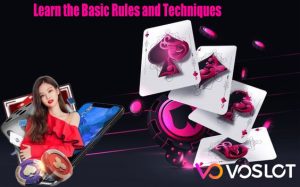Unraveling the Allure: The Psychology Behind Slot Game Addiction

Slot games have captivated millions worldwide with their bright lights, enticing sounds, and promises of big wins. However, the thrill of the spin can quickly spiral into a problematic addiction for some players. In this article, we explore the psychological factors that contribute to slot game addiction, the mechanisms that keep players hooked, and the potential impacts on their lives. By understanding the science behind the allure of slot games, we can better recognize the risks and develop strategies to mitigate them.
The Mechanics of Slot Games: How They Hook You In
Slot games are meticulously designed to be engaging and addictive. From the moment a player begins, they are drawn into a world where every spin feels like it could be the one that changes everything. The use of bright colors, flashing lights, and catchy music creates a sensory-rich environment that stimulates the brain’s reward system. The random nature of slot games, where outcomes are determined by a Random Number Generator (RNG), keeps players in a state of anticipation, making them believe that the next spin might be the lucky one. This unpredictability, coupled with the occasional small win, reinforces the behavior, encouraging continued play.
The Role of Cognitive Biases in Slot Game Addiction
Cognitive biases play a significant role in why people become addicted to slot games. One such bias is the “illusion of control,” where players believe they can influence the outcome of a game through their actions, such as pressing the spin button at just the right time. Another common bias is the “gambler’s fallacy,” where players think that past results influence future outcomes. For example, if a player has been losing for a while, they might believe they are “due” for a win. These cognitive distortions create a false sense of control and hope, leading to prolonged play and, eventually, addiction.
The Impact of Slot Game Addiction on Mental Health
The effects of slot game addiction extend beyond financial losses. Players often experience significant mental health challenges, including anxiety, depression, and stress. The constant cycle of winning and losing can create intense emotional highs and lows, leading to mood swings and irritability. Over time, the compulsion to gamble can erode a person’s self-esteem, as they struggle with feelings of guilt and shame over their inability to stop. In severe cases, slot game addiction can lead to social isolation, as individuals withdraw from friends and family to focus on gambling.
Strategies for Managing and Preventing Slot Game Addiction
Recognizing the signs of slot game addiction is the first step toward recovery. It’s essential to set strict limits on time and money spent on gambling and to stick to these boundaries. Self-exclusion programs, where players can voluntarily ban themselves from casinos or online gambling sites, can also be effective. Additionally, seeking support from counseling or support groups can provide the necessary tools and encouragement to overcome addiction. Public awareness campaigns and educational programs about the risks of slot game addiction can help prevent it from developing in the first place.
Conclusion
Slot game addiction is a complex issue rooted in both the design of the games and the psychological makeup of the players. By understanding the mechanisms that make slot games so addictive and the cognitive biases that fuel this addiction, individuals can take proactive steps to protect themselves. While slot games can be a source of entertainment, it’s crucial to be aware of the risks and to approach them with caution. With the right strategies and support, it is possible to enjoy gambling responsibly and avoid the pitfalls of addiction.





